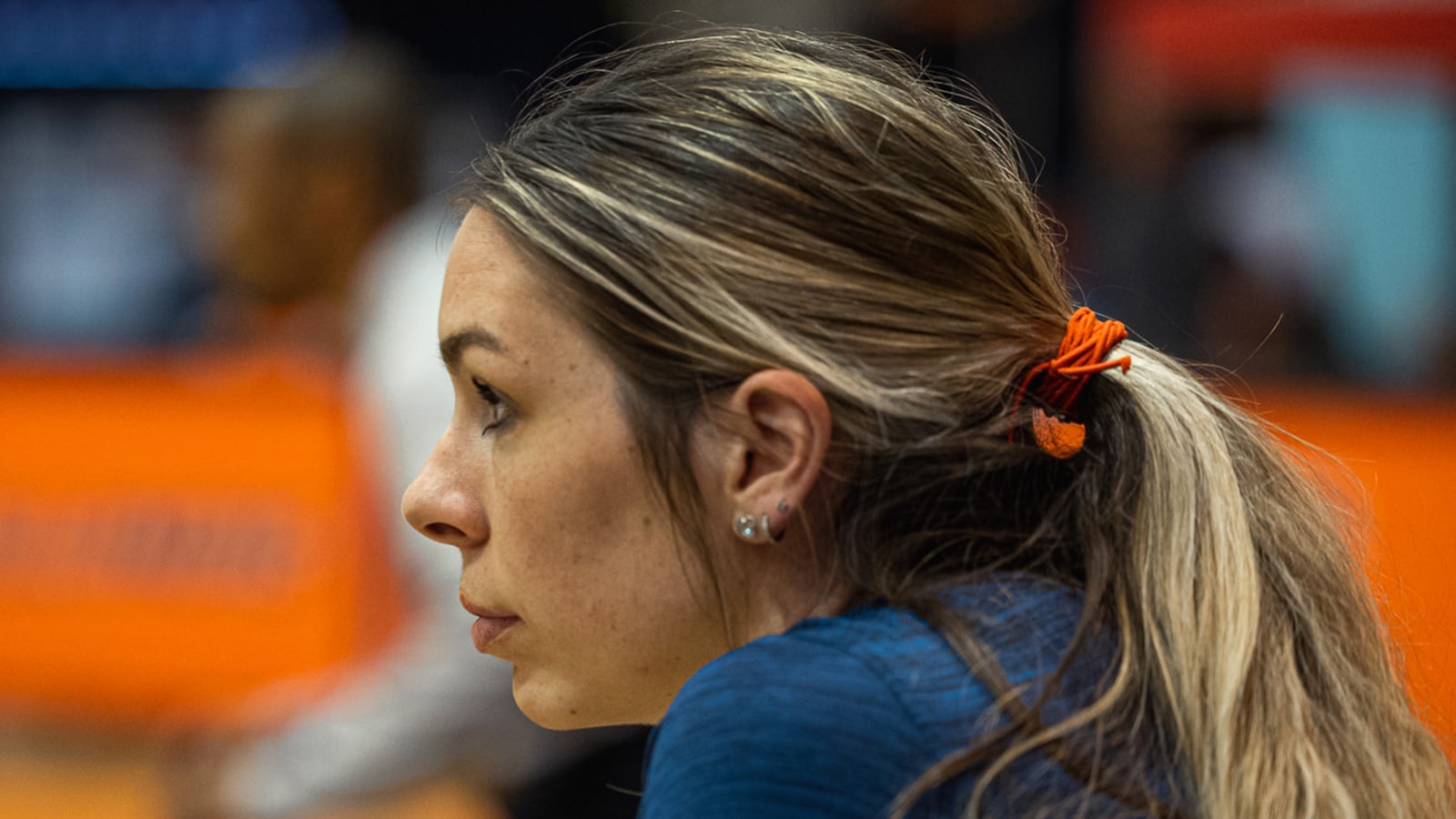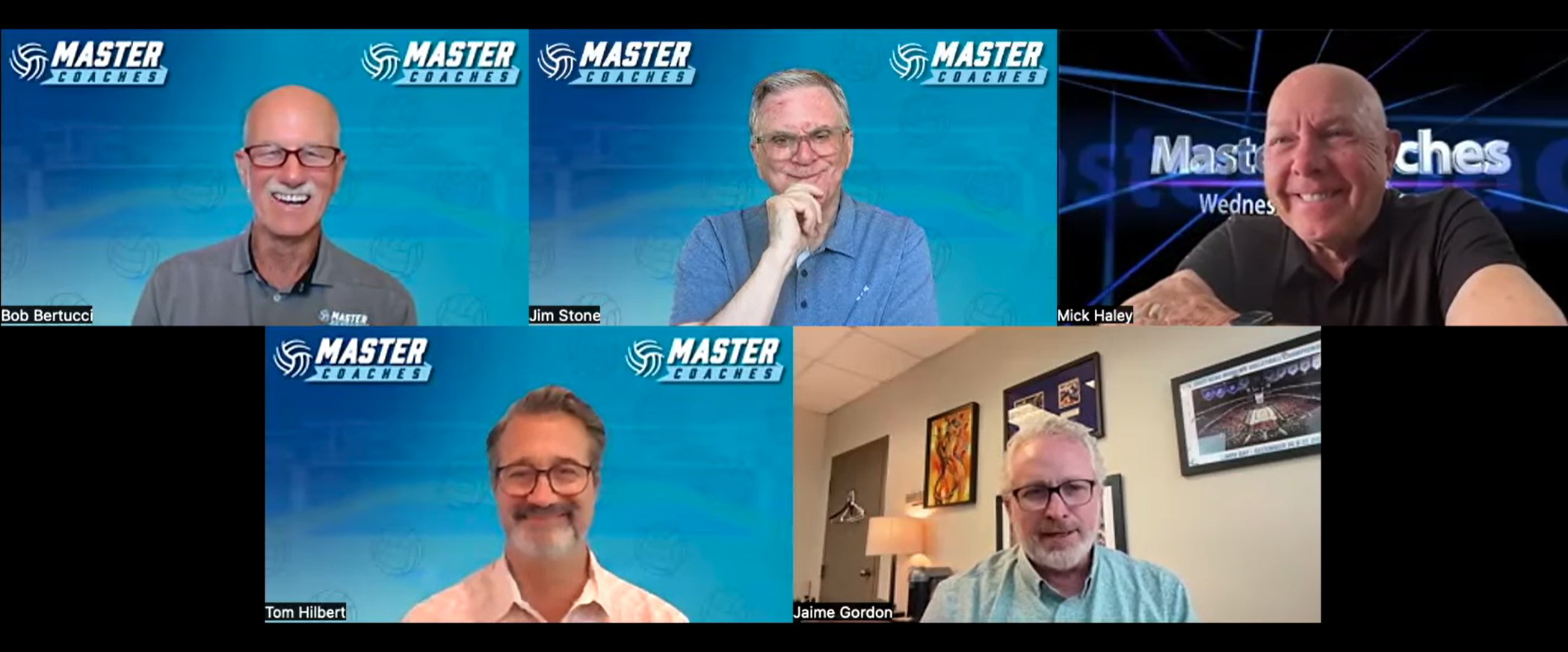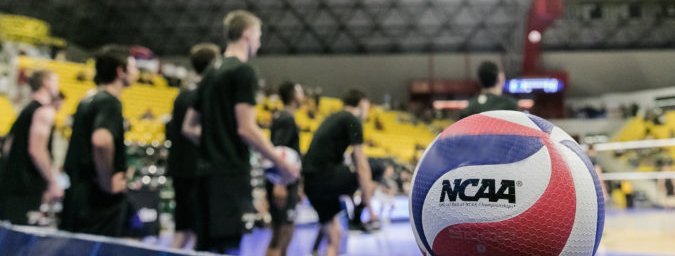By Krista Vansant, University of Illinois Assistant Women’s Coach
June 15 has become one of the most important days on the recruiting calendar. There is a lot of excitement and anticipation for Prospective Student-Athletes (PSAs), their families, and coaches at all levels of volleyball. We prepare all spring for the time when we can first communicate with PSAs finishing their sophomore year. I wanted to share some tips and reminders to help all of us—high school coaches, club personnel, and Division I coaches—prepare for June 15 and navigate the communication process from then on.
High school coaches and club personnel:
- Comparison is the thief of joy. Remind your PSAs and their families that everyone’s recruiting process is unique. They may feel pressure because of knowing from social media who is going where, and it might be tempting to commit to a program early on before they really get to know the staff, current student-athletes, and the academics of each school.
- Help your PSA do research before the fact so they know more about their options. Who is on staff? Does the school offer what they are interested in studying? What city or town is the school in and how far do they want to go from home? What are some of their non-negotiables?
- Encourage parents to have a conversation with their kids about what they would be able to afford or be comfortable paying financially. Are they okay taking out student loans? Help prepare them in case they find the school/program they love and that program doesn’t have a full scholarship for them.
- Have honest conversations about where they are athletically and if they can play at the schools that they are hoping to connect with starting June 15. What happens if they struggle to find playing time?
- One common thing that happens on the initial phone call is asking the recruit to talk about themselves outside of volleyball. It is great when a PSA is prepared with a couple facts about themselves and their families. I also love when they have questions prepared for us; it shows that they have taken the time to think about what they are looking for in a school and program.
- Help parents understand that they should be a part of the recruiting process and give advice as things go along, but it should ultimately be their daughter’s decision. The PSA should be the one setting up the calls, but it is very much okay for parents to be on the call or listening in the background.
- If the PSA is feeling overwhelmed, you can help them limit the number of calls they and their families want to do per day or week. A PSA I talked to last year only scheduled 3–5 calls per day so that she had time to process and digest each conversation with each program. I thought that this was a great way to manage their time.
- Remind them that it is okay to tell a program that they are not interested. We hear no all the time, and we actually respect and appreciate when a recruit tells us where they are in the process so we can narrow our list down.
- Invite them to make a pros and cons list after their conversations. What did they love about each conversation? What questions arose after the call that they didn’t think of before? What are the next steps with that program?
- Lastly, remind them that they have more time than they think. There is an opportunity for everyone to play after high school, and there are some phenomenal places and programs at all levels. Patience!
Division I Coaches:
- Remember, we are not permitted to set up and schedule future calls with PSAs through their club or high school coaches before June 15. Use the 15th as a day to schedule and begin conversations.
- Letting club coaches/recruiting coordinators know that you have general interest in the PSA is important. However, we are not permitted to tell club personnel and/or their high school coach where they rank on our list or if there will be any scholarships offered.
- Prepare your schedule according to what you need for the 15th:
- Who do you need to see more of before June 15? Create a target list and make sure that you have seen them play enough, either in person or on video.
- Intentionally determine who on staff is going to talk to which PSAs and why. For example, maybe a recruit has something in common with the head coach and you want her and her family to talk to them first.
- What means are you going to use to talk to each recruit? FaceTime, Zoom, regular phone call?
- Don’t overschedule your day. Just like the recruits, you are trying to figure out who would fit into your program, so give yourself time to digest each call. This may include writing out notes, talking with other members of the staff, or just reflecting on your own.
- Get creative with how you can show off your program and what you offer. Craft the story that you want to tell each individual recruit. Do you want to use a PowerPoint? Graphics? Videos?
- Do you want to walk around campus on FaceTime with the recruit and her family? Do you want to be in your gym or facility? Is it better to be in your office or home? Figure out what is going to work for you to best establish a connection with the recruit and her family.
- Decide how you want to organize notes and thoughts after calls. Are you going to put notes in University Athlete? Are you going to utilize a shared excel file or word document? This will help keep everyone on the same page, and it is a good refresher before someone new on staff talks to a recruit for the first time or you talk to the recruit for the second time.
- Be prepared to be told no. This will help narrow down your list.
- Finally, after June 15, keep recruiting the PSAs! Send them updates and information about your program. Keep them in the loop on what is going on as your season ramps up in August. Help them follow along, and show them what it is like to be a student-athlete at your school and in your program.
I hope that these few reminders and tips can ease some of the anxiety and pressure that we all feel when we think about June 15. Hopefully, there is something new that you can use.
See you all out on the recruiting trail again soon!







